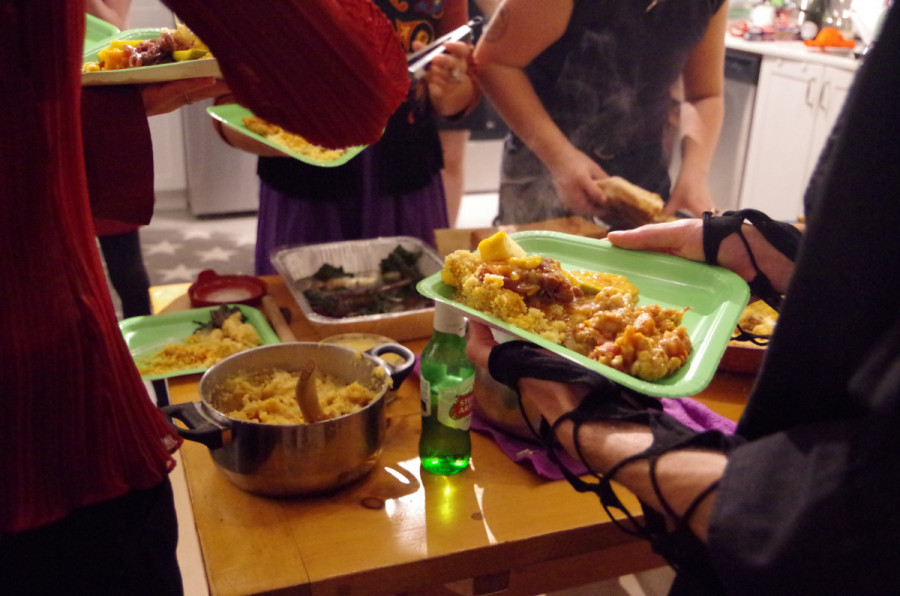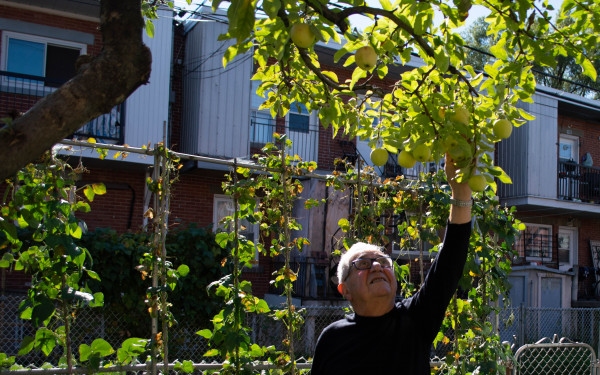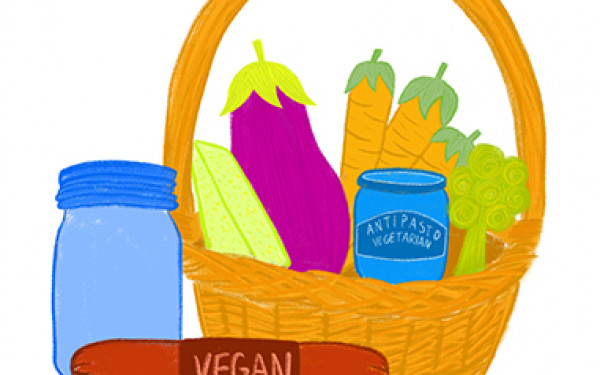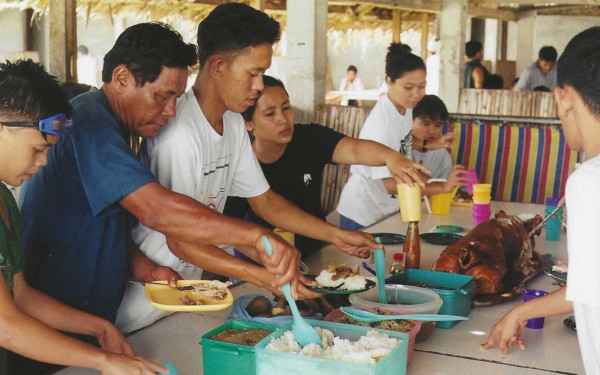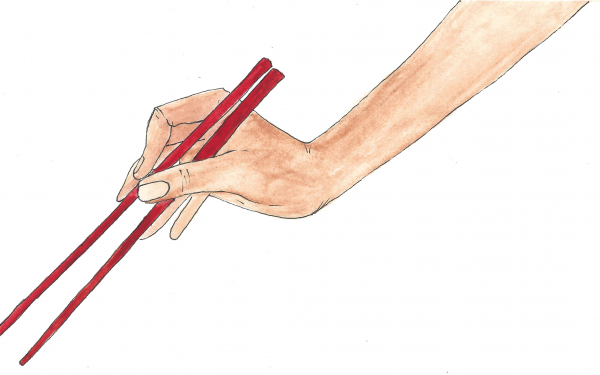Maison Choma: more than just food
Montreal’s only Tanzanian catering business fills bellies and souls
A beautiful knot of arms instantaneously descended over the long table in the centre of the room when the host declared, “The food is ready.”
Hands passed dishes back and forth, scooping steaming, purple-stemmed collard greens and ladling fragrant red stew onto plates, brimming with flavour. The centrepiece: a heaping mound of couscous adorned with pieces of steamed zucchini, carrots, and potatoes like a crown, topped in glistening, caramelised onions bejewelled with maroon raisins.
Five minutes later, the table was deserted. Standing in circles or sitting cross-legged on the floor, every guest in attendance was already busy shovelling sauces and starches into their mouths. With stomachs beginning to feel satiated, the conversations that would flow freely for the rest of the night began.
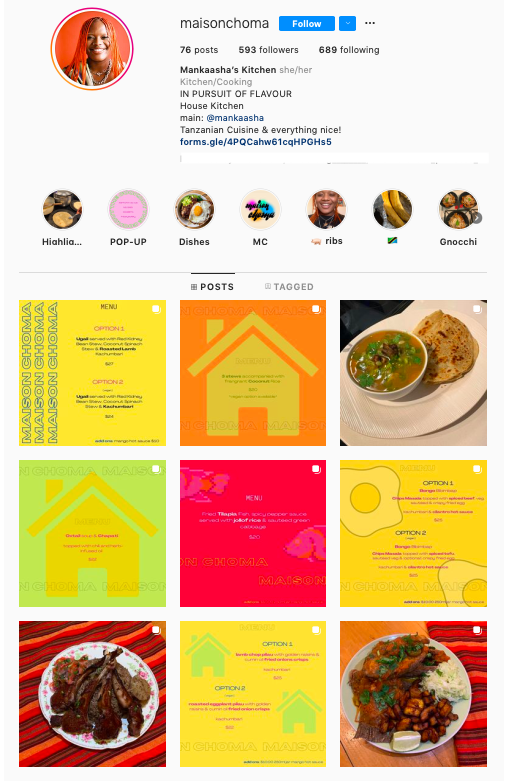
This happens most weeks in Mankaasha Umba’s basement suite. At least, it has been since Umba started Maison Choma, a Tanzanian catering business, last April. Umba—a third year communications student at Concordia specializing in intermedia, and a visual artist on the side—has turned her passion for food into a job. Through Maison Choma, she lovingly shares her culture and sheds light on an underrepresented cuisine.
At the start of each week, Umba creates a menu. She then posts on the Instagram account @maisonchoma, through which she takes orders until Friday, when she finalizes the numbers and heads to the grocery store. Then, over the course of the weekend, she cooks for people across Montreal’s Plateau and Mile End, inviting her closest friends over to enjoy the meals at her home.
This has become a common anecdote: a hobbyist, during the pandemic, turned their former pastime into a profitable endeavour. But cooking has always been central to Umba’s life. “Growing up in an African household […] all of our recipes are family portions, it’s always for five people plus,” said Umba. Sharing meals as a family, Umba explained, was a given.
Naturally, when COVID hit, Umba turned to her kitchen for comfort and community. “During the pandemic, it made me cook even more. I was just always cooking,” she recalled. Hungry for a way to share what she was making with people other than her well-fed roommates, she decided to start an Instagram account.
Through social media, she began documenting her culinary experiments, posting about recipes she was trying to perfect and sharing pictures of the dishes she made.
Originally, the account was meant to be a spoof, but it took off. In summer 2020, for her birthday, she hosted an outdoor dinner party to raise money for the Black Lives Matter movement. “[At this event], a lot of people were like, ‘Yo! Your food is really good, you should sell it,’” said Umba. Prior to her friends’ encouragement, she never gave much thought to turning her culinary skills into a source of income. “I was like, why not, this seems like it would be a lot of fun.”
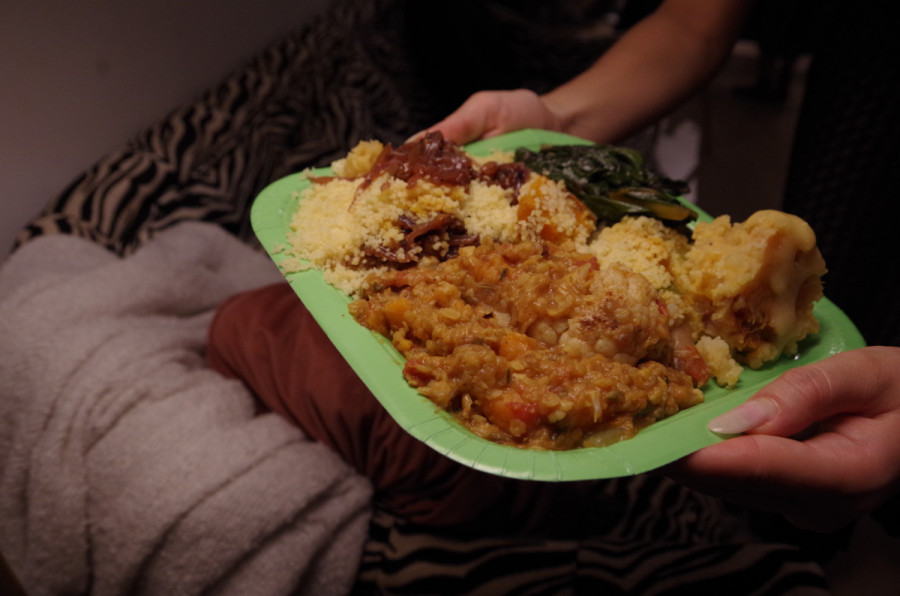
Read more: They Go Low, We Go Laugh opens the mic up to intersectionality
Read more: Don’t @ me: Cupcakes suck
Motivated by the lack of East African restaurants in Montreal, Umba decided she wanted to sell traditional Tanzanian-style food. “That was another reason that really encouraged me to open Maison Choma,” she said. “There was nothing that I was ever craving in first year [university] that I could just go get, it would always have to be me calling my mom for the recipe so I could make it on my own.”
For Maison Choma, Umba puts a twist on the recipes she was raised on. “It’s African food in the sense of how it’s made, but it can never be 100 per cent African because it’s made here [in Canada], so it is playing on levels of diaspora,” said Umba.
“It’s more than just sharing food. It’s sharing culture, sharing a part of herself that’s very important and meaningful.” — Rachel Habrih
Umba is continually experimenting with cultural fusion and adapting dishes to offer vegetarian and vegan options. A while back, she did a take on western BBQ ribs with a zesty tamarind sauce. Earlier this year, she made Korean Bibimbap using crispy chana masala spiced fries as a base instead of rice. Her next project: Italian. “I’m in this curve where I really want to make pasta. I’m planning on buying a pasta machine and figuring out how [to] make pasta […] Tanzanian!” exclaimed Umba.
“Maison Choma is very important because African food needs to be more represented, especially in the Montreal scene, and it needs to be represented in a way that’s luxurious and creative and modern,” explained frequent customer Abeer Almahdi. “Maison Choma is very revolutionary in that way.” Eager to support their friend, Almahdi and her roommates Nicholas Raffoul and Rachel Habrih have been ordering since day one.
“It’s more than just sharing food. It's sharing culture, sharing a part of herself that’s very important and meaningful,” explained Habrih. Raffoul agreed, adding, “I think that’s just a testament to who she is. She’s very appreciative. She’s a go-getter […] She’s very meticulous.”
When her guests were done scraping their plates clean and licking drops of salty gravy off their fingers, Umba went around collecting her friends’ dirty dishes and ensuring everybody had had enough to eat. The rosy cheeks and smiling faces assured her they had.

